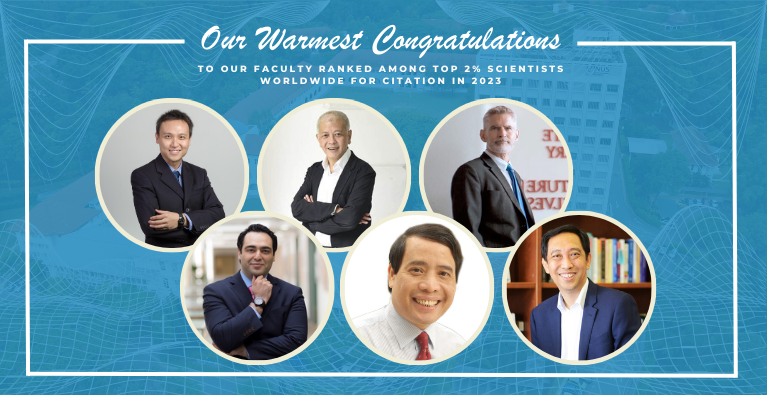
Six faculty members from Lee Kuan Yew School of Public Policy (LKYSPP) have been ranked among the top 2% of all scientists in the world, according to a 2023 assessment undertaken by researchers who compared faculty based on citation metrics. Of the six, two are in the top 1%.
The study, published by Elsevier BV, was led by John Ioannidis at Stanford University and his team who analysed data from Scopus to generate the
worldwide rankings of scientists.
The two LKYSPP faculty members who have ranked among the world's top 1% for both lifetime and citation impact in 2022, the current report’s period of assessment, are:
- LKYSPP’s Dean and Li Ka Shing Professor in Economics, Danny Quah
- Li Ka Shing Professor in Public Management and Director, Institute for Environment and Sustainability (IES), Benjamin Cashore
They join the other four LKYSPP faculty who rank among the top 2% for their citations in 2022:
The globally recognised study covers more than 6 million researchers over 22 scientific fields and 174 sub-fields. The research team developed a database of top 2% of world scientists (over 100,000 scientists) on the basis of standardised citation indicators, including information on citations, H-index, co-authorship, and a composite indicator for career-long impact.
The fields in which the six faculty are acknowledged for demonstrates how LKYSPP’s policy research continues to strengthen evidence and build relevance in informing multiple practices and global concerns.
LKYSPP faculty have consistently topped global rankings. In 2021 and 2022, Prof Quah and Prof Cashore were also placed among the world’s top 1% of scientists for lifetime citations, as well as at the top 2% in a single-year citation impact with Assoc Prof Vu and Asst Prof Taeihagh.
Said Dean of LKYSPP, Professor Quah: “Our faculty have done the School proud in their scientific research and achievement. Accomplishments like this continue to get our School engaged at the very highest levels in global scholarly and policy debate.”